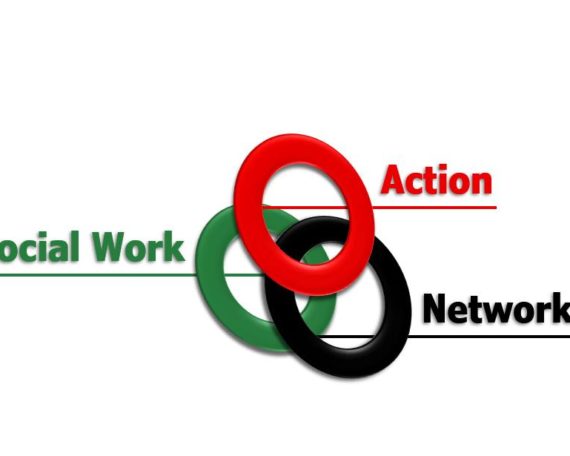It forms the foundation of Swan and demonstrates our overtly critical and political stance. Feel free to draw upon this document as a resource:
Social work and social justice: a manifesto for a new engaged practice
Colleagues from the UK have published a manifesto for social work practice that calls for a political position of professional social work against the background of political and social changes.
Social work and social justice: a manifesto for a new engaged practice
- Social Work Today
Social work in Britain today has lost direction. This is not new. Many have talked about social work being in crisis for over thirty years now. The starting point for this Manifesto, however, is that the ‘crisis of social work’ can no longer be tolerated. We need to find more effective ways of resisting the dominant trends within social work and map ways forward for a new engaged practice.
Many of us entered social work – and many still do – out of a commitment to social justice or, at the very least, to bring about positive change in people’s lives. Yet increasingly the scope for doing so is curtailed.
Instead, our work is shaped by managerialism, by the fragmentation of services, by financial restrictions and lack of resources, by increased bureaucracy and work-loads, by the domination of care-management approaches with their associated performance indicators and by the increased use of the private sector. While these trends have long been present in state social work, they now dominate the day-to-day work of front line social workers and shape the welfare services that are offered to clients. The effect has been to increase the distance between managers and front line workers on the one hand, and between workers and service users on the other. The main concern of too many social work managers today is the control of budgets rather than the welfare of service users, while worker-client relationships are increasingly characterised by control and supervision rather than care.
Unless the fundamental direction of social work changes, then neither a new social work degree nor new bodies such as the Social Care Councils will do anything to improve the current situation. These are no more than ‘technical fixes’ for deep-rooted problems. So attempts by individual local authorities to alleviate the staffing crisis by offering cash incentives – the so-called ‘golden hellos’ – simply move the problem around.
In the absence of an organised response to these trends, people understandably react in different individual ways. Some social workers may leave the profession, but for many this is not an option. Some workers have found ways within their workplaces to occupy spaces where they can practice a more rounded social work – in the voluntary sector, for example, or in more specialist projects – but this option is not available to most. Even in the voluntary sector the trends are increasingly mirroring the managerialist pattern of the statutory agencies.
And yet, the need for a social work committed to social justice and challenging poverty and discrimination is greater than ever. In our view, this remains a project that is worth defending. More than any other welfare state profession, social work seeks to understand the links between ‘public issues’ and ‘private troubles’ and seeks to address both. It is for this reason that many who hold power and influence in our society would be delighted to see a demoralised and defeated social work, a social work that is incapable of drawing attention to the miseries and difficulties which beset so many in our society. This alone makes social work worth fighting for.
The current degraded status of social work as a profession is inextricably related to the status and standing of those we work with. Social work clients are amongst some of the most vulnerable and impoverished in our society, and have benefited least from New Labour’s social welfare reforms. In fact, under New Labour we have witnessed not only greater levels of material inequality, but also an intensified demonisation of asylum seekers, young people and poor families, the very groups that social workers engage with. Too often today social workers are often doing little more than supervising the deterioration of people’s lives.
So in opposition to those who would be happy to see a defeated and silenced social work occupation, we are seeking a social work that has prevention at its heart and recognises the value of collective approaches. At the same time we also recognise that good casework has also suffered as a result of the trends referred to above. We are looking to a social work that can contribute to shaping a different kind of social policy agenda, based on our understanding of the struggles experienced by clients in addressing a range of emotional, social and material problems and the strengths they bring to these struggles.
- Resources of hope
Many social workers who despair about the ways in which social work has been changed can see no way out of the current situation. Given the mauling that social work (and social workers) have taken from politicians and the tabloid media over the past twenty five years, some despair or despondency is understandable, However, there is a real danger that this can blind us to the new resources of hope that have emerged in recent years and which may point the way towards a reinvigorated social work practice which plays a part in the demands for a more just and humane society.
Over the last two decades the growth of users movements (like the disability movement and the mental health users movement) have brought innovation and insight to our ways of seeing social and individual problems. These movements have developed many relevant and interesting approaches to dealing with service users needs – collective advocacy, for example, or (in the mental health field) the Hearing Voices groups or user-led approaches such the Clubhouse model. The fact that these models have come, not from professional social work but from service users themselves, emphasises that social work needs to engage with, and learn from, these movements in ways that will allow partnerships to form and new knowledge bases and curricula to develop.
In addition the last few years have witnessed the growth of dynamic and international global protest movements against capitalism and war. In the 1960s and 1970s social work was profoundly influenced by the ‘spirit of the sixties’: the Vietnam anti-war, the black, and the women’s movements. It was this that laid the basis of future anti-oppressive social work practice. Today we are seeing the rise of similar social movements. Within the anti-capitalist and anti-war movements we have ‘greater resources of hope’ than have been available to us for 30 years. These have been movements within which user groups and NGO’s have fruitfully engaged and within which questions of social justice are paramount. They have challenged the orthodoxy of neo-liberal globalisation and its devastating impact on the poor and dispossessed across the world, on the environment and on the human costs of the privatisation of services.
The anti-capitalist movement was born out of the protests against the World Trade Organisation’s Third Ministerial in Seattle in 1999 and has since spread across the globe. Over the last year it has merged with the movement against war and Imperialism. In February 2003 the spirit of anti-capitalist protest dramatically came to Britain when 2 million people demonstrated in London against the war on Iraq. The breadth and inclusiveness of this movement in conjunction with its energy and youthfulness, has revitalised many who had fallen into despair. It has also had an impact in rejuvenating the spirit of protest within the trade union movement.
But these movements are not just against war and capitalism they have also started to think of alternative futures. Over the last three years at various World and European Social Forums large numbers of people have come together to share ideas and discuss what another world might look like. These debates can help us think about the shape of a modern engaged social work based around such core ‘anti-capitalist’ values as democracy, solidarity, accountability, participation, justice, equality, liberty and diversity.
Thus we find ourselves at a crossroads. Down one road is managerialism and increased marketisation, and with it frustration and despondency for frontline workers; while down the other there is a possibility – and it is no more than that – for a renewed and regenerated social work that engages with the resources of hope available in the new collective movements for an alternative, and better, world.
An ethical career
The enduring crisis of social work in Britain has taught us many things. It has brought us to a state of affairs that nobody in their right mind could possibly view as acceptable. It has taught us that there can be no return to a past of professional arrogance and that progressive change must involve users and all front line workers. As agents of change senior managers have had their day. It has reminded us that budget dominated welfare systems are cruel and destructive of human well-being. The casualties are everywhere in the social work system amongst clients and users and social workers. These years of turmoil have highlighted that social work has to be defined not by its function for the state but by its value base. Above all it has been a stark lesson in the need for collective organisation, both to defend a vision of social work based on social justice and also to defend the working conditions that make that possible.
As we noted at the start of this Manifesto, in the past many people entered social work because it seemed to offer a way of earning a living that did not involve oppressing or exploiting people, but on the contrary could contribute, even in a small way, to social change. It was, in other words, an ethical career. That potential for social change has all but been squeezed out of social work by the drives towards marketisation and managerialism that have characterised the last decade and a half. Yet overwhelmingly it is still the case that people enter social work not to be care-managers or rationers of services or dispensers of community punishment but rather to make a positive contribution to the lives of poor and oppressed people. If it is the widening gap between promise and reality that breeds much of the current anger and frustration amongst social workers, it is also the awareness that social work could be much more than it is at present that leads many of us to hang on in there.
We note that the organisation People and Planet includes social work within its ‘Ethical Careers Service’. If that progressive promise is to be realised even in part, then we need to coalesce and organise around a shared vision of what a genuinely anti-oppressive social work might be like.
This Manifesto is a small contribution towards the process of developing that vision and that organisation.
Chris Jones, Professor of Social Work, University of Liverpool.
Iain Ferguson, Lecturer in Social Work, University of Stirling.
Michael Lavalette, Senior Lecturer in Social Policy, University of Liverpool.
Laura Penketh, Lecturer in Social Work, University of Manchester.
2004
The manifesto online: http://www.liv.ac.uk/sspsw/Social_Work_Manifesto.html or http://www.socmag.net/?p=177

